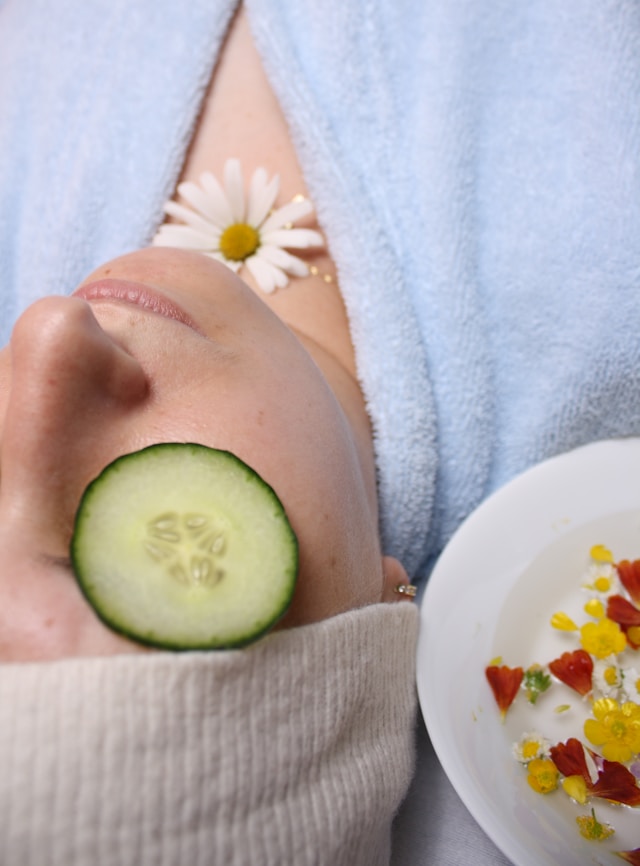As The skin microbiome is a community of micro organism living on the top of the skin surface, which are said to be nurturing for skin health, immune system ,and health in general. In addition to traditional skincare formulas like cleansers and creams, knowledge of how the skin microbiome responds to external conditions is key to achieving a healthy and robust skin barrier. In this article, we examine the complex interaction of the skin microbiome and skin health, featuring new studies and the natural ways we can reinforce a life-loving microbiota living on our skin.
The Skin Microbiome Explained
The skin microbiome is composed of a multitude of microorganisms with different composition of inhabitants depending on the location on the skin [10]. They interact with the immune cells of the skin, they release metabolites and they modulate the pH of the skin so that the skin can build a strong protective barrier against pathogens and external harmful factors. A balanced skin microbiome is key to quelling inflammation, preventing infection, and maintaining skin hydration and elasticity.
INFLUENTIAL FACTORS OF SKIN MICROBIOME
Many factors, including genetics, age, diet, hygiene practices, environmental pollutants and skincare products, are known to influence the overall composition and diversity of the skin microbiome. Imbalances in the skin microbiome, such as overgrowth of pathogenic microbes (dysbiosis) or depletion of beneficial ones, have been plausibly linked to skin conditions like acne, eczema, rosacea, and aging prematurely. Knowing how variables in the external world relate to the skin microbiome can help us develop personal skincare practices that keep our skin healthy and its microbial community diverse.
- Solutions that Support a Healthy Skin Airway MicrobiomeUltimately, Healthy Skin
- Advocates for holistic skincare treatments advocate for a healthy skin microbiome associated with a balanced lifestyle and is an approach that can provide healthier skin, firm, smooth, and free of rashes, etc. Strategies include:
- Mild Cleansing: Washing gently and with mild products that help maintain the skin’s pH and do not disturb the resident microbial communities in place.
- Probiotic and Prebiotic Skincare – the inclusion of probiotics (beneficial bacteria) or prebiotics (ingredients that feed bacteria) in skincare products, to encourage a balanced skin microbiome.
- Good nutrition and adequate hydration: eating a diet rich in antioxidants, and omega-3 fatty acids, as well as remaining adequately hydrated, will go a long way in supporting the skin barrier function and maintaining a healthy skin microbiota.
- No Harsh Chemicals: Exposure to harsh chemicals, artificial fragrances, and preservatives that can harm the skin microbiome or irritate sensitive skin.
- Using Natural Ingredients: One can also turn to using skincare products that have natural ingredients which may not strip your skin of its microbiome.
Future Research Directions
Ongoing microbiome research has led to a greater understanding of the complicated role of the skin microbiome in maintaining skin health, and innovative skincare solutions are being designed accordingly. The research strives to understand microbial-host interactions, develop microbial therapies for skin disorders and promote personalized skincare based on individual microbiome profiles. Different microbiome transplantation, microbial-based therapies, and microbiome-targeted treatments can be a target in future researches to improve skin health and treat dermatologic diseases successfully.
Conclusion
Beyond traditional skincare practices, the skin microbiome is a key player in skin health, immunity, and more generally, overall well-being. Nourishing the skin microbiome with gentle cleansing, probiotic skincare, balanced diet, and mindful skincare practices can help to maintain a healthy and resilient skin barrier, reduce inflammation, and achieve a glowing complexion. Holistic skincare has gained in popularity, with an emphasis on the microbiome and the restoration of microbial diversity in the gut and on the skin has opened the door for consumers to take control of their skincare health at the source of where it all begins, embracing the relationship between skin health and skin microbiome.








